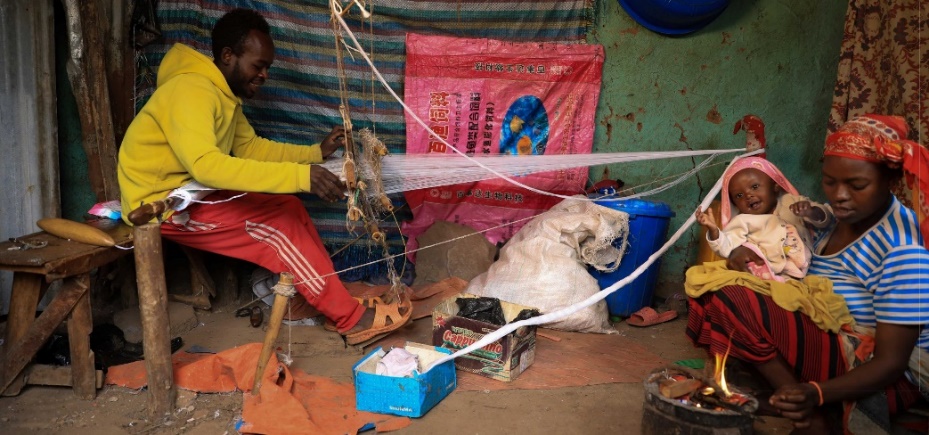'NIPN Ethiopia webinar: COVID-19 is increasing child wasting in Ethiopia and around the world Ethiopia'
September 23, 2020

The COVID-19 pandemic poses grave risks to the nutritional status and survival of young children in low- and middle-income countries, due in part to steep declines in household incomes, changes in the availability and affordability of nutritious foods, and interruptions to health, nutrition, and social protection services.
The International Food Policy Research Institute (IFPRI) conducted recent analysis on economic shocks and child wasting showing a disturbing increase in the prevalence of moderate or severe wasting among children younger than 5 years due to COVID-19-related losses in gross national income per capita.
To consider the implications of this analysis for Ethiopia, the Ethiopian Public Health Institute (EPHI), IFPRI, the Ethiopia National Information Platform for Nutrition (NIPN) and the Food Security Portal (FSP) Project co-hosted a webinar on 'COVID-19 and its impacts on childhood malnutrition and nutrition related mortality' on 23rd September.
The webinar brought together 88 participants from different sectors, including policymakers, academia, development partners and NGOs, to discuss the evidence and policy implications for Ethiopia. Derek Headey, IFPRI Senior Research Fellow, presented IFPRI's analysis on economic shocks and child wasting and included a modeling for Ethiopia.
This has the potential to guide decision-making processes during the finalization of the Food and Nutrition Strategy and the implementation of COVID-19 mitigation actions in Ethiopia. IFPRI analysis showed that COVID-19 would increase the number of wasted children (low weight-for-height) by 6.7 million compared to a 2020 without COVID-19, while Ethiopia could see an increase of 134,000 moderately or severely wasted children relative to what was expected before COVID-19.
The projections are based on a global model and do not include country specific shocks such as the desert locust invasion or seasonal floods in Ethiopia, which would drive up this estimate. It will be critical to protect children with nutrition-sensitive social protection at an unprecedented scale, to prevent and treat severe acute malnutrition and to continue safe maternal and child health care services.
The presentation was followed by perspectives from two panelists, Dr Sisay Sinamo, Senior Program Manager of the Sequota Declaration from the Ministry of Health and Stanley Chitekwe, Chief Nutrition Officer at UNICEF. Both panelists provided their remarks on the relevance of the findings for Ethiopia, and how the analysis is an advocacy tool with important policy implications. The session ended with a lively question and answer session.
The speaker and panelists identified key questions and evidence gaps that remain and stressed the importance of monitoring and evaluation during this COVID-19 crisis. While this is difficult for many governments and NGOs to do in the short run, phone surveys can help to track the impacts of the crisis. This renewed demand for additional information and evidence will support the research agenda of the Government of Ethiopia, NIPN and the National Nutrition Program Monitoring, Evaluation and Research Steering Committee.
The NIPN is a multisectoral initiative supported by the European Union, the Bill and Melinda Gates Foundation and the Foreign, Commonwealth and Development Office. The NIPN in Ethiopia is housed at EPHI, receives technical assistance from IFPRI under its Compact2025 initiative. The NIPN promotes evidence-based decision making for nutrition and supports the implementation of the National Food and Nutrition Policy.
The FSP is facilitated by IFPRI and is funded by the European Commission. The portal pools information in structured ways and ensure data quality, timeliness, and relevance. Both platforms provide opportunities for collaboration among policymakers, development professionals and researchers.
To access the webinar recording, please click here. For the presentation, please click here and for the summary of the Q&A session, here.

